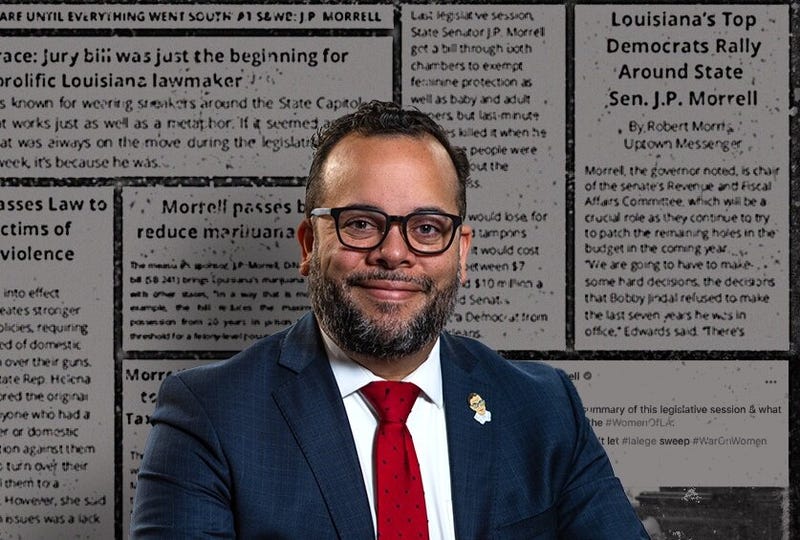
“We'll look into spending and how a decision was made to replace the old barricades that… could withstand a U-Haul truck at 40 MPH with decorative bollards that couldn't stop a Go Kart…We want to know who made that decision and at what time.”
That’s what City Councilman JP Morrell told Newell Normand in an interview Tuesday about the New Orleans City Council’s investigation into French Quarter security implementation that will launch later this week.
JP Morrell spoke on the scope of the investigation, which will involve subpoenaing documents from years past related to security policies and measures for protecting the FQ.
Morrell stated, “Millions of dollars were spent to install these bollards that were useless.”
The investigation will sort out which groups played the largest part in rendering the French Quarter’s security plan so ineffective.
Morrell explains, “I can say with some certainty that the NOPD and Homeland Security had input on these bollards… I can also say that a variety of other groups had a say in security.”
While accountability for security failures is the focus of the investigation, Morrell also understands the difficulty of balancing security with efficiency. Morrell states, “There has always been tension when it comes to securing the French Quarter versus the ease of entering and exiting the French Quarter. Security is inconvenient, and from what I’ve seen there was a lot of tension in this decision making.”
The conversation turned to Mardi Gras. Morrell touched on how President Biden providing Mardi Gras with a level one Special Event Assessment Rating (SEAR-1) might alter traditional parade routes.
“Now that we have Mardi Gras in New Orleans elevated to a SEAR-1 classification, there really is no telling what Mardi Gras is going to look like… If federal security personnel says ‘this particular route is impossible to secure,’ they’ll change it.”
Morrell continues, “The Endymion route is very difficult, if not impossible, to secure as a route. We've had two mass casualty events at Endymion that were both drunk drivers—not even terrorists. A federal security officer is going to opine on what the route looks like and when they give us the opinion, that’ll be it.”
Finally, Morrell explained how the City Council has historically been blocked out of decision-making related to French Quarter security policy.
“When it comes to tactical implementation of security assets,” Morrell explains, “the council is on the outside looking in. I talked to my Jefferson parish colleagues, and the disconnect between us and the administration is breathtaking, in that, even after this horrific event, the council was never notified that there was a terrorist attack at all.
Morrell states that on the day of the attack, “Our security briefings ended Thursday at noon. I talked to my colleagues in Jefferson Parish and other cities who were aghast that you could have a coequal branch of government missing basic information. When you don’t have clear lines of communication between officials, it's just hard to assure the public that this investigation will be taken care of in a transparent manner.”
